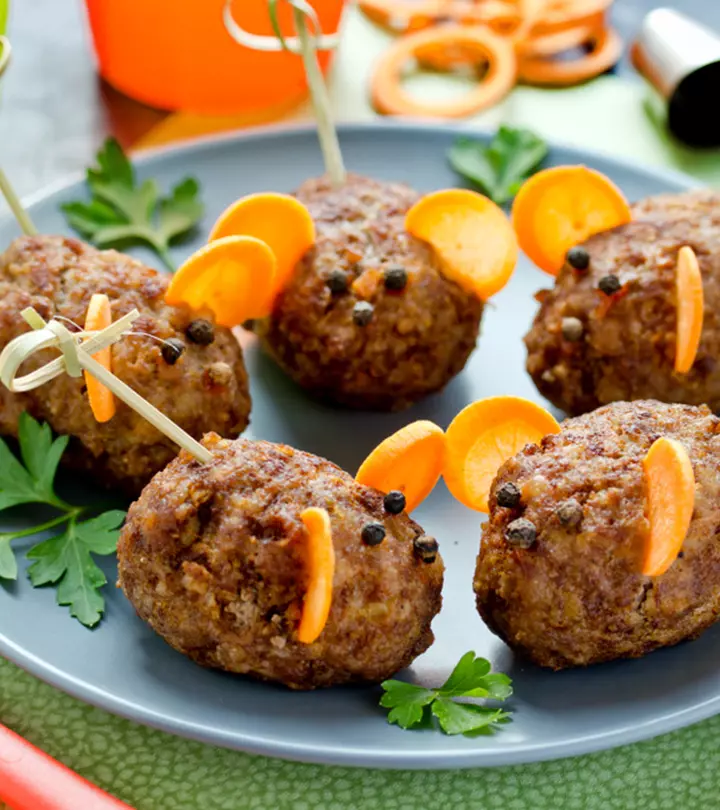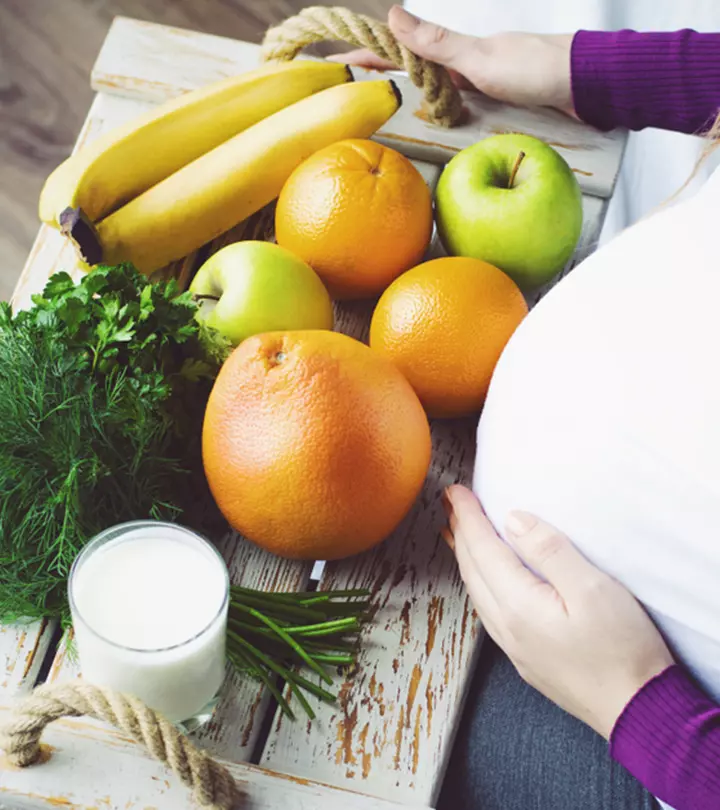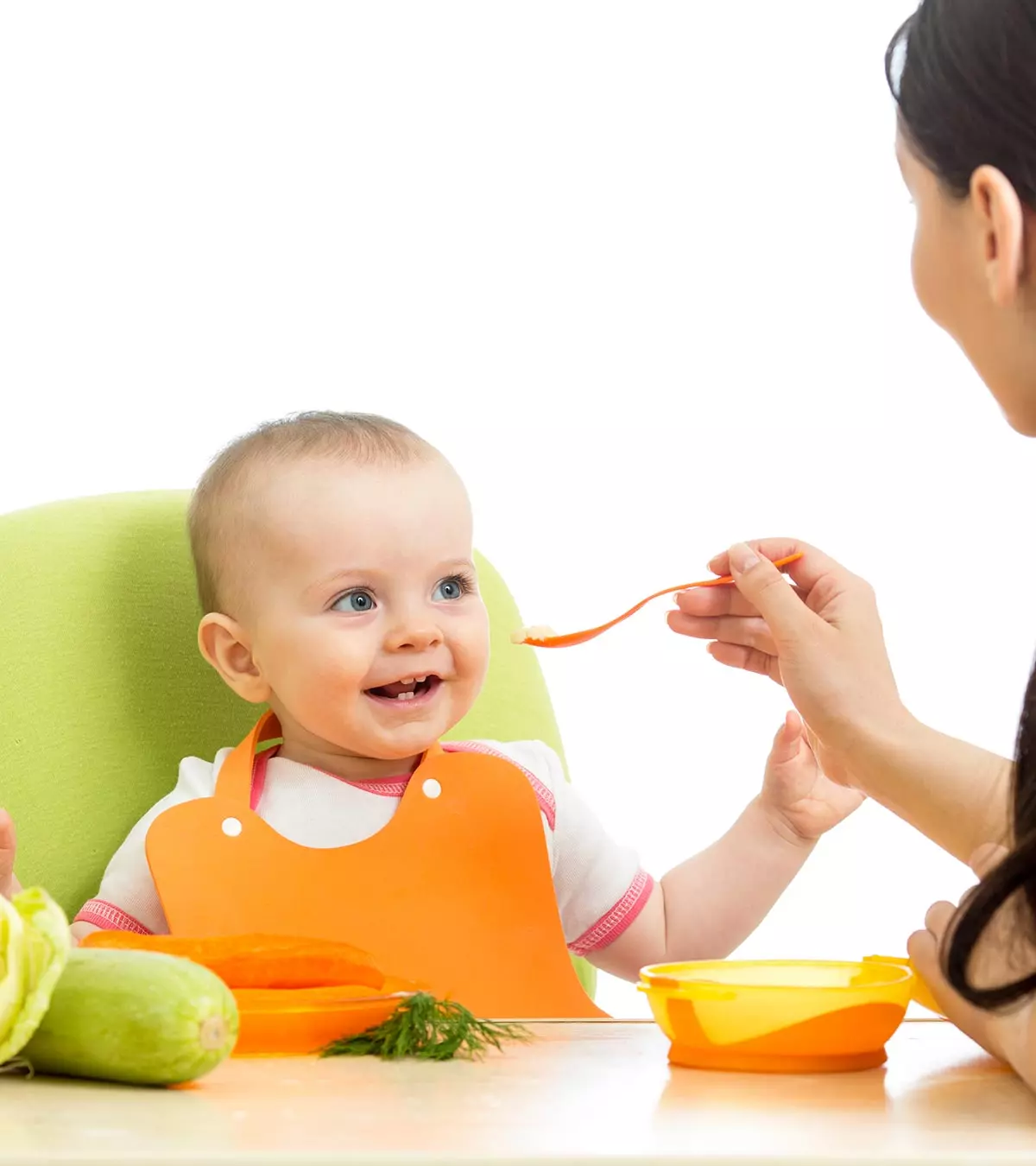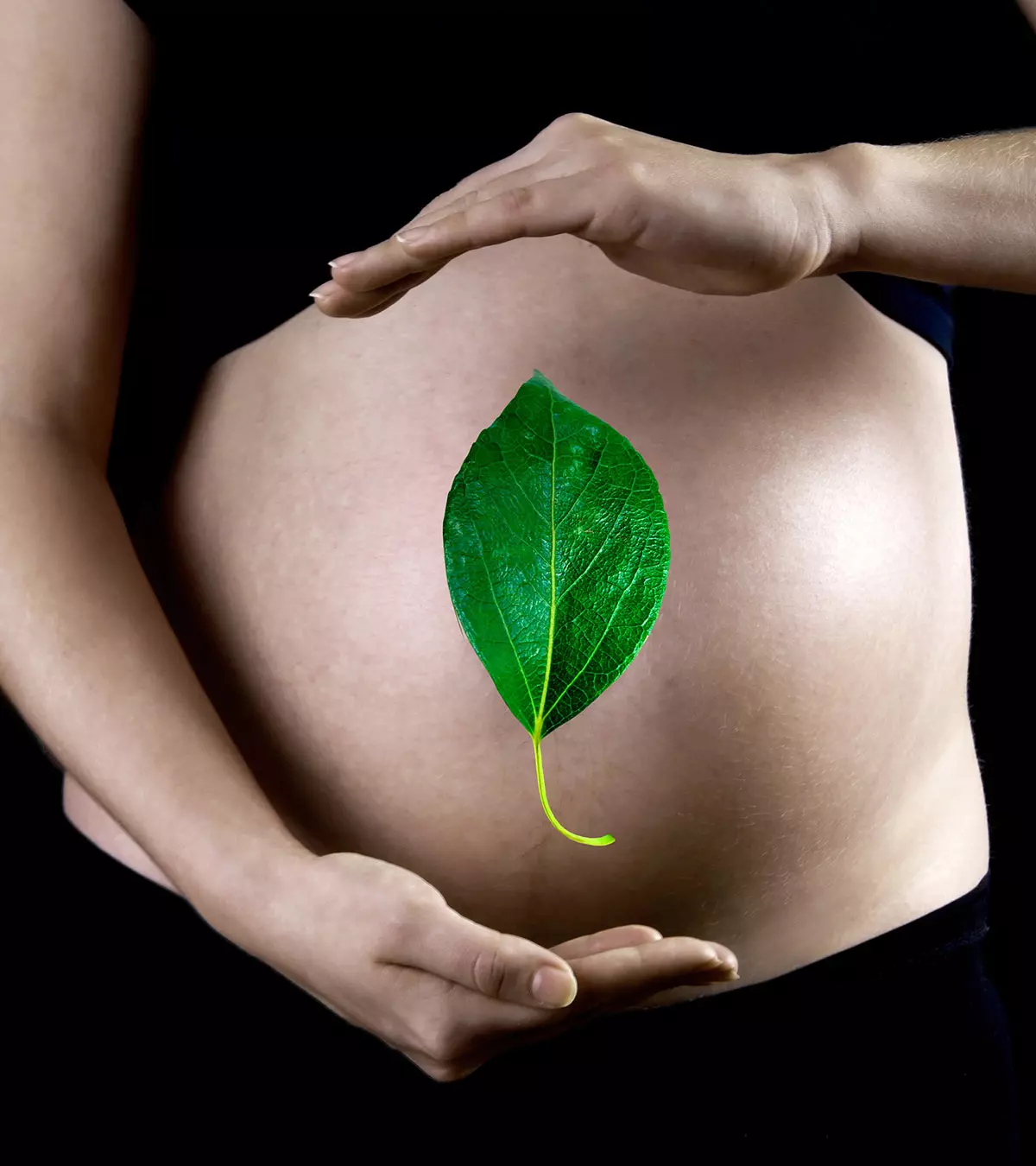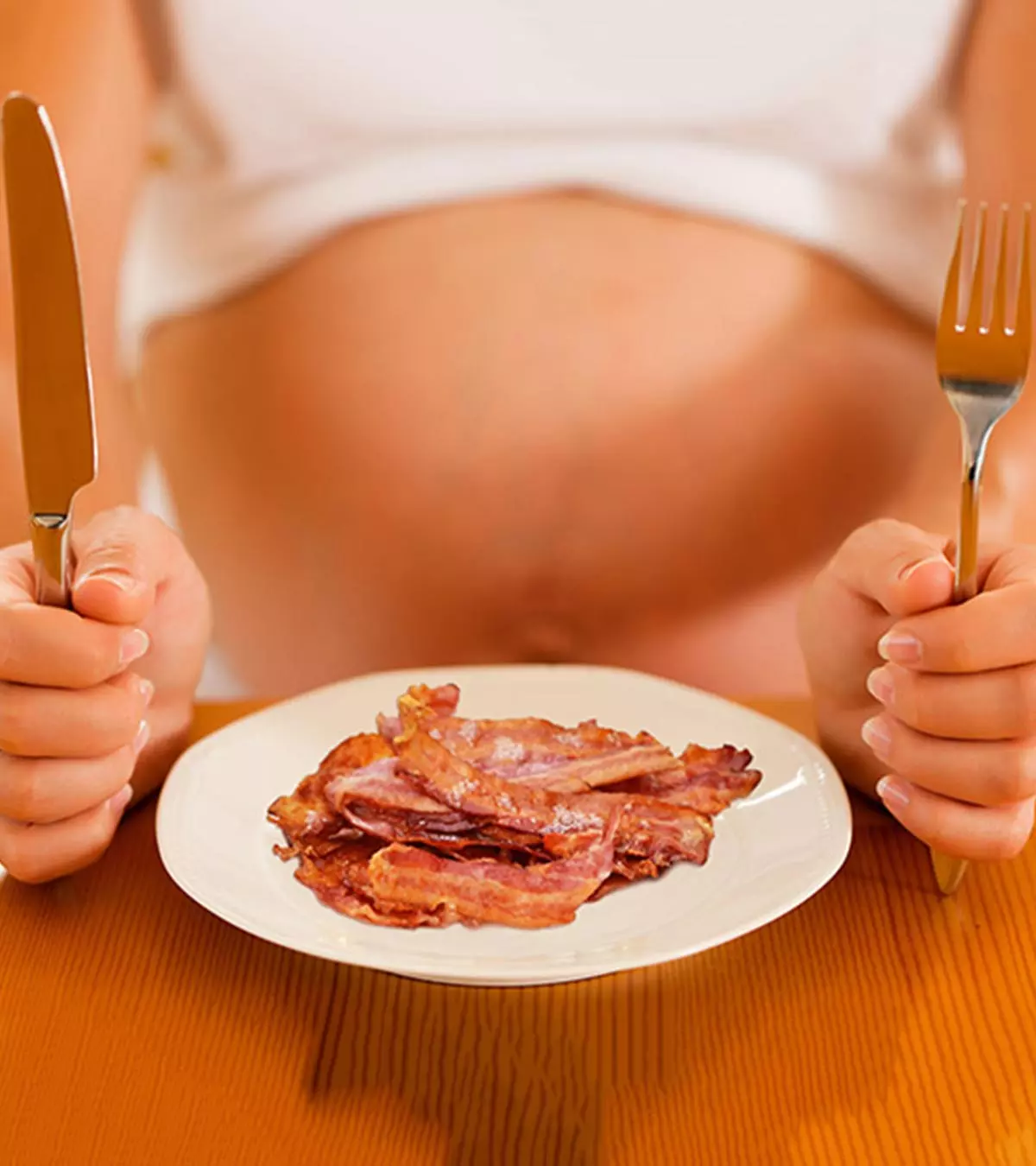
Bacon is the processed and cured meat of pig or turkey seasoned with salts and condiments. Many women are unsure of the effects of eating bacon during pregnancy. Bacon has many nutritional benefits, so it may be consumed during pregnancy. However, you should take care when cooking it and remember to consume it in moderation. Read the post for detailed information on the health benefits and side effects of eating bacon when pregnant, tips on cooking it properly, symptoms of infections caused by eating raw bacon, alternatives of bacon, and pregnancy-friendly recipes. Understanding both the benefits and risks of eating bacon during pregnancy can help women make informed decisions.
Key Pointers
- For pregnant women, bacon is safe for consumption in moderation due to its nutritional benefits.
- Consuming bacon during pregnancy can help improve memory, aid fetal development, and help fight diseases.
- Broccoli salad with bacon and spinach and bacon pasta are appetizing bacon recipes for pregnant women.
- It is not recommended to consume cold or raw bacon while pregnant to avoid exposure to bacteria.
- Certain risks associated with consuming bacon during pregnancy include listeriosis and increased cholesterol levels.
Can Pregnant Women Eat Bacon?
Yes, bacon can be a tasty addition to the diet chart for pregnant women. However, make sure that you properly cook the meat before consumption.
Bacon is a staple breakfast in most households, but it is cured with salt, spices, nitrites, additives, and sometimes even sugar to give it a unique taste. Therefore, eating it in excess can be a bad idea, Especially for women with or at risk of pre-eclampsia.
Before adding bacon to your diet, know about the nutrition it offers.
Nutritional Value Of Bacon
The nutritional value of cooked pork bacon, per 100g of serving (1):
| Nutrients | Amount |
|---|---|
| Calories | 898 |
| Total fat | 99.50g |
| Saturated fat | 31.991g |
| Cholesterol | 97mg |
| Sodium | 27mg |
| Vitamin B3 | 0.725mg |
| Potassium | 15mg |
| Protein | 0.07g |
| Vitamin A | 37IU |
| Calcium | 1mg |
| Iron | 0.13mg |
| Vitamin B6 | 0.005mg |
| Vitamin B12 | 0.09mcg |
| Phosphorus | 9mg |
| Choline | 6.5mg (2) |
| Selenium | 5.7mcg |
mcg=micrograms; g=grams; mg=milligrams; IU= International unit
Given the nutrients it contains, bacon provides certain health benefits to a pregnant woman.
Health Benefits Of Bacon During Pregnancy

Image: Shutterstock
Here are some benefits of eating bacon while pregnant:
- Brain power: Bacon is a good source of choline, which is essential for brain development in the growing baby (3). It also helps in improving memory.
- Feel full: Bacon is rich in protein and thus makes you feel full even if you eat less. It is high in fat and low in carbohydrates, which helps in maintaining the weight of obese women during pregnancy.
- High in protein: It is an excellent source of protein that is vital for the baby’s development. Protein is necessary for healthy bones, skin, hair, and muscle development. It offers all the amino acids essential for the body (4).
- Antioxidant: Bacon is a good source of selenium, which is an antioxidant that helps fight diseases and promotes thyroid development in the baby (5).
- Source of phosphorus: Phosphorus is crucial for the development of adenosine triphosphate (ATP) and DNA, both of which are essential for fetal development (6).
- Vitamin B: Bacon is a good source of vitamin B, which is essential for the development of the nervous system in the fetus (7).
- Good source of folate: Bacon is a rich source of folate that is essential for pregnant women.
You can enjoy these benefits when you consume bacon in moderation.
How Often Can You Eat Bacon When Pregnant?
Bacon is a good source of saturated fats and hence should be consumed in moderation, especially by women with a higher BMI. Moreover, if you have gestational diabetes, you must avoid cheese and bacon.
According to the American Heart Association, the recommended intake of saturated fat per day is 13g if the person needs to get 2000 calories per day. If the fat intake exceeds this amount, it may lead to unnecessary weight gain.
During pregnancy, the calorie intake increases from 2200 to 2900 calories/day (8). So if you are pregnant, your consumption of bacon should be limited to prevent excess consumption of saturated fats and excessive salt that comes with processed meats. The high sodium content in bacon may increase the risk of complications like high blood pressure and pre-eclampsia. A study conducted by scientists from multiple institutions has revealed that preeclampsia, a condition impacting five to seven percent of pregnant women globally, poses a life-threatening risk to mothers and their babies, necessitating premature delivery.
Bacon can be consumed cooked, or raw and cold, which may not be suitable for all.
Can You Eat Cold Bacon While Pregnant?
No, ideally. If you are buying packaged cooked bacon, then refrigerate it at 40°F or below immediately after you take it home. When you open packaged bacon, it gets exposed to the surrounding environment that can introduce bacteria. Therefore, reheat the product for safe consumption. It will kill the bacteria if any.
Sometimes, bacon consumption can be risky even when taken in moderate quantities. Therefore, make sure to consult your doctor for personalized advice.
What Are The Risks Of Eating Bacon During Pregnancy?
Here are some significant risks associated with the consumption of bacon during pregnancy:
- Listeriosis: A common bacteria found in raw bacon, listeria can put a pregnant woman at the risk of miscarriage, preterm labor, or stillbirth. In babies, it could lead to infections and even cause lifelong disabilities such as paralysis, intellectual disability, or seizures (9). So always cook the bacon properly before consumption.
- Saturated fat: High levels of saturated fats can lead to an increase in the cholesterol levels (10). This increased fat deposition can constrict the blood vessels, leading to heart problems.
- Preservatives: Nitrites are carcinogenic preservatives used for curing the bacon, and can be harmful to the mother and the baby.
- High sodium: Bacon is also rich in sodium level, which in turn, can elevate blood pressure levels if eaten in excess (16).
Bacon should ideally be consumed fresh, or within a couple of days after the package is opened. If you intend to use only a small portion of packaged bacon, you need to store the remaining meat carefully.
How To Store Bacon?
Packaged bacon can be safely used for seven days when refrigerated at a temperature of 40°F or below. It can be used for one month when kept in the freezer at 0°F. The sausage form of pork can stay for one to two days when refrigerated at 40°F and for 1 to 2 months in the freezer at 0°F (11).
Cooking bacon the right way can also reduce the risks to some extent. More about it next.
How To Properly Cook Bacon To Avoid Listeria During Pregnancy?

Image: Shutterstock
Here is how you can ensure food safety while cooking bacon for safe consumption.
- Wash your hands thoroughly before and after handling the meat.
- Cook the bacon over a stove instead of a microwave oven to kill the bacteria completely. Cook till it becomes red and crispy.
- Consider using a food thermometer to ensure that the internal temperature of the cooked bacon is at 165°F or more.
- Always reheat the leftover bacon at 165°F.
- Always keep the uncooked bacon separate from other meats and vegetables.
If you have handled or consumed raw bacon and suspect a bacterial infection, look out for the symptoms and visit a doctor.
 Point to consider
Point to considerSymptoms Of Listeria To Look For If You Had Raw Bacon

Image: IStock
Bacon should never be consumed raw. But if you have had it, look for the following symptoms (12):
- Fatigue
- Uneasiness
- Nausea and vomiting
- Stomach upset
- Fever
- Chills
- Muscle aches
Severe infection could cause a stiff neck, loss of balance, convulsions, or headaches. See your doctor if you experience any of these symptoms.
Bacon comes from the meat of different animals. You can pick one based on your preferences.
 Did you know?
Did you know?Bacon Alternatives During Pregnancy
If you do not want to consume pork, you can try these substitutes that come close to fulfilling your cravings for bacon. Here is the list you can choose from:
Turkey bacon: Its rich taste makes it a common alternative to bacon (pork). Turkey bacon is low in cholesterol and fat but is not as crunchy as pork bacon.
- Chicken bacon: It is low in fat and has less sodium compared to other varieties. This is ideal for a low salt diet with more protein and fewer calories.
- Lamb bacon: It has more or less the same amount of fat as pork bacon but may not be as crispy.
- Vegetarian bacon: This is for people who do not eat meat. Vegetable bacon is also called Vacon or Fakon. It is made of either tempeh or tofu. Moreover, it is less in fat and high in proteins and dietary fibers.
Next, we look at a few easy-to-make bacon recipes for pregnant women.
Pregnancy-friendly Bacon Recipes
Here are some bacon recipes you can prepare at home:
1. Spinach and bacon pasta

Image: Shutterstock
You will need:
- 5 strips turkey bacon, cooked
- 1 tbsp olive oil
- 3/4 cup chopped Spinach
- 1 tsp minced garlic
- 250gm whole wheat spaghetti (cooked and drained)
- 1 cup reduced sodium beef or chicken broth
- 2/3 cups smoked cheese, grated
- Ground pepper
How to prepare:
- Heat oil in a pan.
- Put the minced garlic and saute for one minute.
- Add spinach and saute for a couple of more minutes.
- Add the broth and cook till it disappears, and then add the spaghetti.
- Let the noodles cook for one minute on a low flame and season it with pepper, cheese and bacon crumbs.
- Serve hot.
 Quick tip
Quick tip2. Broccoli salad with bacon

Image: Shutterstock
You will need:
- ½ cup mayonnaise
- 1tbsp whole-grain mustard
- 1tbsp cider vinegar
- 1 small clove garlic, grated
- 1tsp sugar
- ½ tsp ground pepper
- 4 cups finely chopped broccoli crowns
- 1 cup finely chopped cauliflower
- ¼ cup finely chopped red onion
- 3 slices (¼ cup) cooked bacon, chopped
- 3tbsp toasted sunflower seeds
How to prepare:
- Take a large bowl and whisk the vinegar, mustard, sugar, garlic, mayonnaise, pepper, and sugar.
- Add the finely chopped vegetables and the bacon along with the sunflower seeds.
- Mix all the ingredients until they are well coated.
- Refrigerate it for up to 1 day and consume.
Keep reading to know the answers to some commonly asked questions about bacon consumption during pregnancy.
Frequently Asked Questions
1. How to choose the right bacon?
While choosing pork bacon, look for slices with long veins of lean pink meat and low-fat content. You should also look for bacon brands that are labeled as organic or free from nitrites or preservatives. Also, check the package for the expiration date.
2. Is Canadian bacon safe to eat during pregnancy?
Yes, provided it is well cooked. Canadian Bacon is pork loin, which is the meat cut from the back side of the pork. This bacon is high in fat content and should be thoroughly cooked and taken in moderation during pregnancy.
3. Is uncured bacon safe during pregnancy?
Cured bacon is generally processed meat with salt and sodium nitrite, which is an additive. However, uncured bacon is bacon cured with natural sources of sodium nitrite such as celery, parsley and beetroot extracts for flavoring. While added nitrites are not good for health, natural sources of nitrates do not put you at risk. Also, vegetables are a good source of vitamin C, which prevents the conversion of nitrites into hazardous compounds called nitrosamines.
4. Does craving bacon during pregnancy say something about the baby’s gender?
According to old wives tales, craving for salty and spicy food during pregnancy indicates that you are carrying a boy. Bacon is generally salty and spicy, so if you are craving bacon, then it may indicate you’re having a boy. However, there is no scientific evidence backing these claims.
Like most other meats and foods, bacon should be consumed in moderation during pregnancy. As far as possible, choose preservative-free and thoroughly cooked bacon to prevent the risk of pregnancy. If you still have doubts, talk to your doctor or nutritionist.
5. Why do pregnant women crave bacon?
Cravings during pregnancy are normal, but the precise cause for these cravings is unknown. Hormonal changes during pregnancy could heighten the sense of taste and smell, causing these cravings and aversions (13). Some researchers also believe that cravings indicate a lack of nutrients in your body. Therefore, having a balanced diet during pregnancy is important (14).
6. Does bacon help with morning sickness?
There isn’t enough data available on this topic, but it is recommended that you avoid greasy and spicy foods if you are experiencing morning sickness during pregnancy. Instead, you may eat bland food that does not have a strong smell to help with nausea (15).
It is safe to consume adequately cooked bacon during pregnancy. Bacon is salt-cured pork made using belly cuts or less fatty cuts. You may add bacon to your pregnancy diet as a side dish, main ingredient, or as a flavoring agent in salads. Other meats such as turkey, lamb, and chicken can be cut and cured like bacon. Bacon contains vital prenatal vitamins, omega-3 fatty acids, and minerals such as copper, manganese, selenium, and zinc. It also contains choline which is a vital nutrient for pregnancy. Always buy bacon from trusted sources with labels and cook it thoroughly before eating.
Infographic: How to Cook Bacon Correctly To Prevent Listeria During Pregnancy?
Because of the high-fat and high-salt content, it is better to have bacon in moderation when pregnant. However, bacon can also be a source of important nutrients for pregnancy. So, check out the infographic below to explore wholesome ways to cook bacon properly if you wish to eat it during pregnancy. Illustration: Momjunction Design Team
Illustration: Can Pregnant Women Eat Bacon? Things You Should Know

Image: Dalle E/MomJunction Design Team
References
- Pork, cooked, rendered fat, bacon.
https://www.nutritionvalue.org/Pork%2C_cooked%2C_rendered_fat%2C_bacon_nutritional_value.html - Kristine Y. Patterson et al.; (2008); USDA Database for the Choline Content of Common Foods: Release Two.
https://www.ars.usda.gov/ARSUserFiles/80400525/Data/Choline/Choln02.pdf - S H Zeisel; (1997); Choline: essential for brain development and function.
https://pubmed.ncbi.nlm.nih.gov/9265973/ - Protein.
https://hsph.harvard.edu/department/nutrition/ - Ujang Tinggi; (2008); Selenium: its role as antioxidant in human health.
https://www.ncbi.nlm.nih.gov/pmc/articles/PMC2698273/ - Phosphorus.
https://www.eatforhealth.gov.au/nutrient-reference-values/nutrients/phosphorus - Vitamin B.
https://www.betterhealth.vic.gov.au/health/healthyliving/vitamin-b - Healthy Weight during Pregnancy.
https://www.eatright.org/health/pregnancy - Listeria and Pregnancy.
https://www.acog.org/womens-health/faqs/listeria-and-pregnancy?utm_source=redirect&utm_medium=web&utm_campaign=otn - Eating for lower cholesterol.
https://www.heartuk.org.uk/low-cholesterol-foods/choose-low-cholesterol-foods - Food Safety: For Pregnant Women, Their Unborn Babies, and Children Under Five.
https://www.fda.gov/media/83740/download - Listeria and pregnancy.
https://www.foodauthority.nsw.gov.au/sites/default/files/_Documents/foodsafetyandyou/listeria_and_pregnancy.pdf - Food cravings during pregnancy.
https://www.pregnancybirthbaby.org.au/food-cravings-during-pregnancy - Pregnancy cravings and food aversions.
https://www.tommys.org/pregnancy-information/being-pregnant/nutrition-pregnancy/cravings-food-and-drinks-pregnancy - Morning Sickness Remedies.
https://americanpregnancy.org/healthy-pregnancy/pregnancy-health-wellness/morning-sickness-remedies/ - Your guide to low sodium eating and how to lower blood pressure.
https://health.ucdavis.edu/blog/good-food/your-guide-to-low-sodium-eating-and-how-to-lower-blood-pressure/2022/09
Community Experiences
Join the conversation and become a part of our nurturing community! Share your stories, experiences, and insights to connect with fellow parents.
Read full bio of Moloko Mehlape
Read full bio of shreeja pillai
Read full bio of Swati Patwal
Read full bio of Dr. Joyani Das












